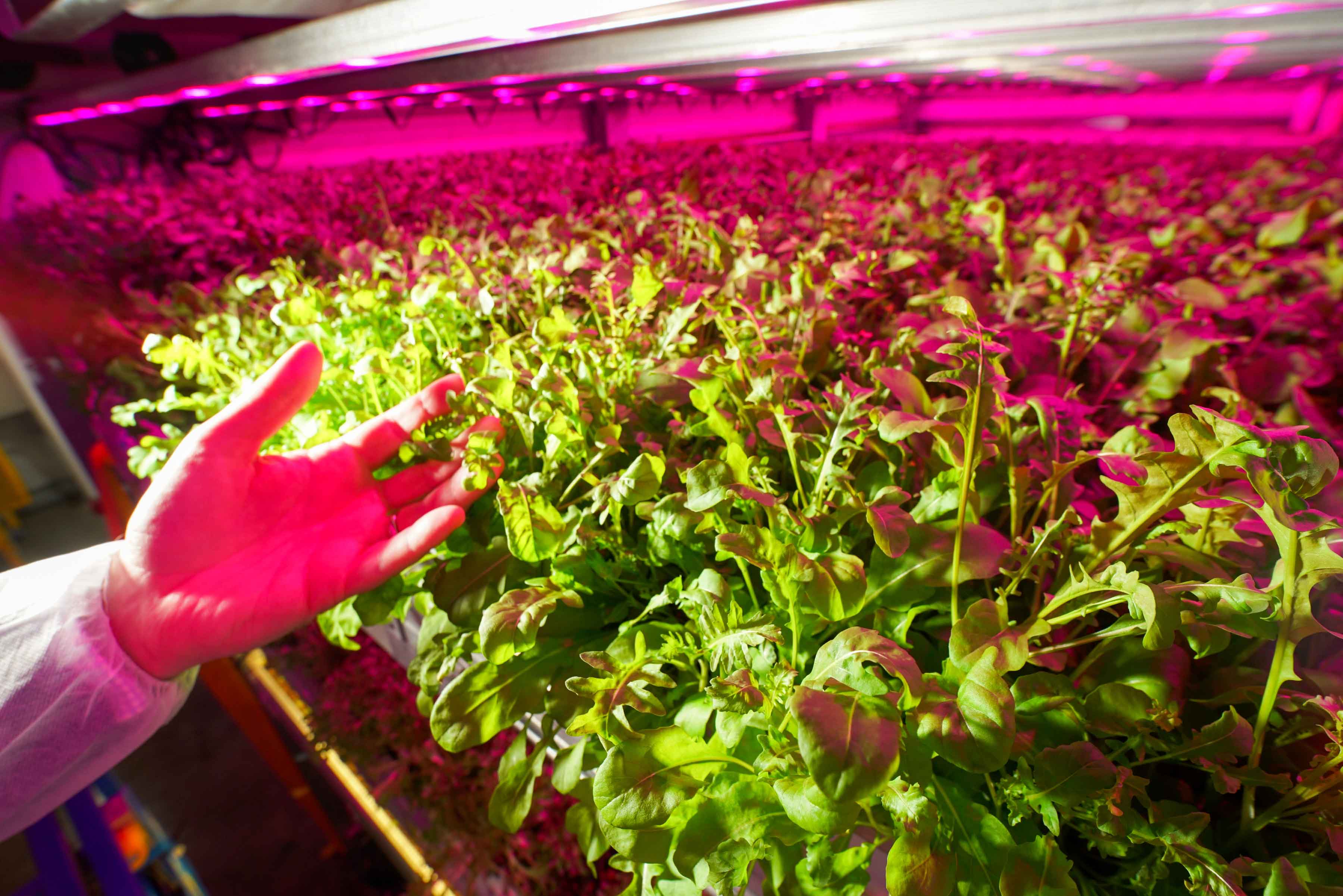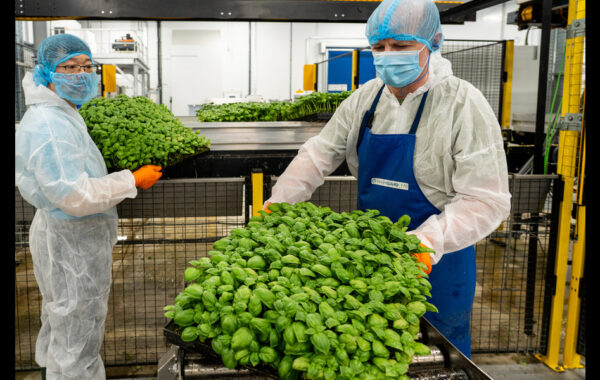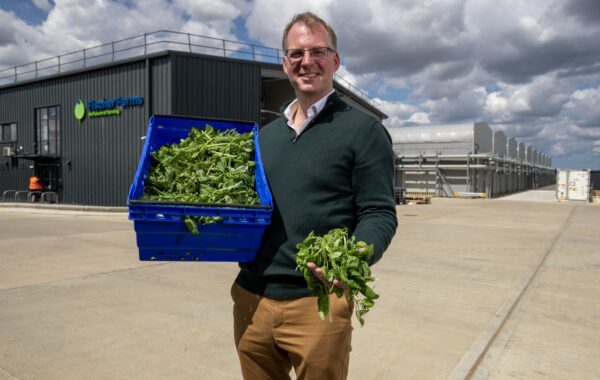
‘Did you know’…we import almost half of our food, adding 20 million tonnes of C02 to the UK’s footprint every year?
As a nation that has traditionally relied on food imports, Tristan Fischer, Founder and CEO of Fischer Farms, explains how vertical farming can bring back British produce, reducing food miles and C02 emissions.
The UK is not self-sufficient in food production and hasn’t been for some time. Currently, we import around 46% of our total food in order to feed a growing population.
When it comes to fresh produce, we import almost half of our vegetables and around 80% of our fruit each year. Items such as bell peppers, lettuce, cucumbers and berries are amongst some of the most imported foods, with fresh food imports reaching around 1.98 million metric tonnes in 2021.
Why?
Importing foods has also played a role in the UK’s food security and resilience in recent years. With factors such as extreme weather events, pests, diseases, or crop failures threatening domestic production, having a diverse source of food reduces the dependence on a single production region.
There are several reasons why the UK currently needs to import food. The first is climate constraints. The UK has a temperate climate that is not conducive to growing certain types of food all year round. It lacks the climate conditions necessary for producing certain fruits, vegetables, and crops, especially those that require warmer or more tropical climates. Importing food has allowed the country to access products that cannot be efficiently grown domestically due to climate limitations.
For those crops that can be grown in the UK, there are still limitations due to seasonal variability. With specific growing seasons, there is often a short window of opportunity for crops like tomatoes, lettuce and berries. For example, UK supermarkets import 95% of their tomatoes in January and 90% of lettuce in the winter months. Importing has enabled the UK to meet consumer demand for a diverse range of products regardless of the local growing season.
Overcoming challenges
Here we explore how vertical farming – revolutionary process, capable of delivering British-grown produce all-year-round – offers real hope, with the ability to transform the UK’s food supply chain, bringing stability and resilience to the fresh produce category.
Traditionally, to ensure UK food security, we have relied on a mix of imports and domestic production. But today, there are numerous factors that make these two sources increasingly volatile.
Extreme weather events
Fresh food shortages, seen here in the UK earlier this year, have shown just how volatile the supply chain really is. Extreme climate swings are already happening, impacting harvests across Europe, and affecting the quantity and quality of produce. From floods in Italy to droughts in Spain, supermarket shelves have been hit by waves of shortages in recent years, as climate change wreaks havoc on European harvests.
Vertically farmed crops are produced in an environment completely independent of external weather conditions. Our produce is cultivated under energy-efficient LED lights in a stacked, biosecure, climate-controlled automated systems to ensure the highest-quality product all year round.
Brexit
Brexit hasn’t made things easier, bringing changes to food import regulations and trading relationships. Not only is it harder to import goods into the UK due to these trading frictions, but the cost this produce has also risen by around 6%, according to the London School of Economics. Brexit has also limited UK farmers’ access to labour, with research** suggesting that there are in excess of 500,000 vacancies from a workforce of 4.1 million.
The British vertical farming industry can safeguard domestic produce, growing the crops we have traditionally imported from Europe, right here in the UK. This provides retailers and packers with a stable supply of produce, decreasing transport miles and costs. Our operations are also highly automated, reducing our reliance on manual labour.
Environmental impact
Importing food also comes with its consequences on the environment. The long-distance transportation of food contributes to greenhouse gas emissions, impacting climate change. According to DEFRA, transporting food within, to and around the UK produces 19 million tonnes of C02 every year – equivalent to around half of that produced by domestic production*.
As consumers become increasingly sustainably minded, and with ambitious net zero targets in place, many food service operators and retailers are now banning air freight, in an attempt to slash carbon emissions and make the UK supply chain more sustainable.
With vertically farmed, British produce, the emissions from transportation are slashed significantly, and air freight is completely eliminated. In addition, vertical farming operations are incredibly sustainable – they use less water than field-grown crops and can be powered with renewable energy.
Pressures on traditional farming
We need to find new ways of feeding the nation and reduce our reliance on imports. But to do so we need a thriving agricultural sector and currently, UK farmers are under immense pressure.
From rising input costs and land shortages, to soil degradation and sustainability concerns, plus the added strain of work force challenges, traditional farming is not currently capable of producing enough food to reduce our need for imported goods.
Vertical farming, however, can provide critical relief for the challenges that traditional farmers are facing on a daily basis. Vertical farming enables us to be much more productive using less space. We can grow the same amount of food in our 4-acre building as 1,000 acres of traditional British farmland. Our closed system approach means there is no impact on the surrounding countryside from issues typically associated with traditional farming, such as topsoil erosion or chemical run-off.
We can deliver British-grown, high-quality produce all year round, in an incredibly sustainable way, regardless of water availability, climate and soil quality.
Future of farming
The rise of vertical farming offers real promise for food security in the UK and beyond. Currently, our technology is employed to produce fresh produce, such as salads and leafy greens.
Our R&D programme is already developing the technology to grow soft fruits, and we believe within the next decade, vertical farming will have developed the capability to grow calorific staples, such as rice and wheat and protein staples, such as peas and soya beans, sustainably at scale.
Vertical farming has the potential to transform the UK food supply chain, delivering sustainable, high-quality produce all year round. Not only will this reduce our reliance on imports, which in turn reduces our food miles and carbon footprint, but it also supports the British farming industry, enabling traditional farmland to be used in the most productive and efficient way.
** https://committees.parliament.uk/publications/9580/documents/162177/default/





